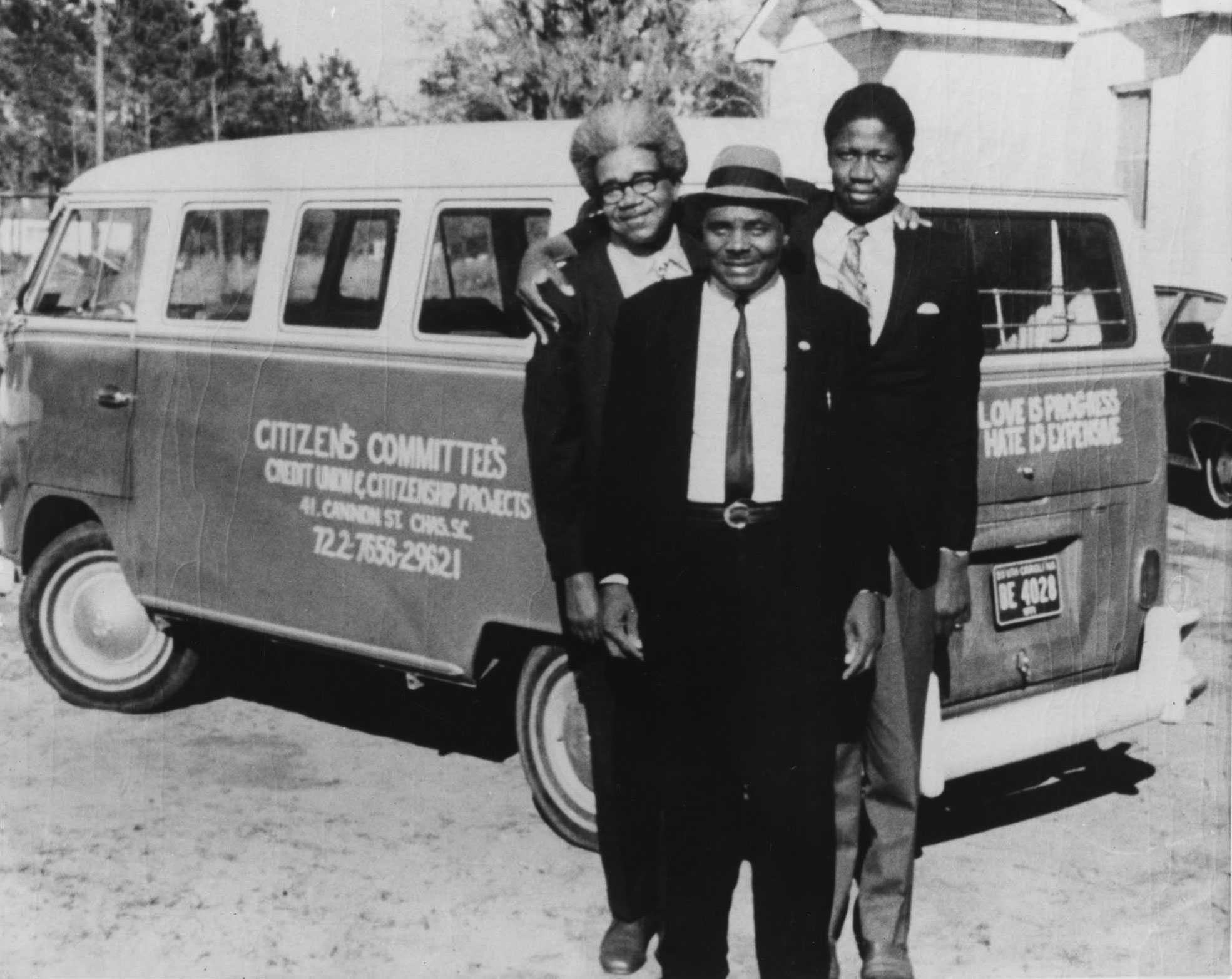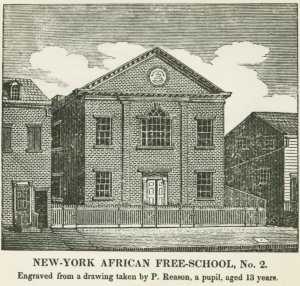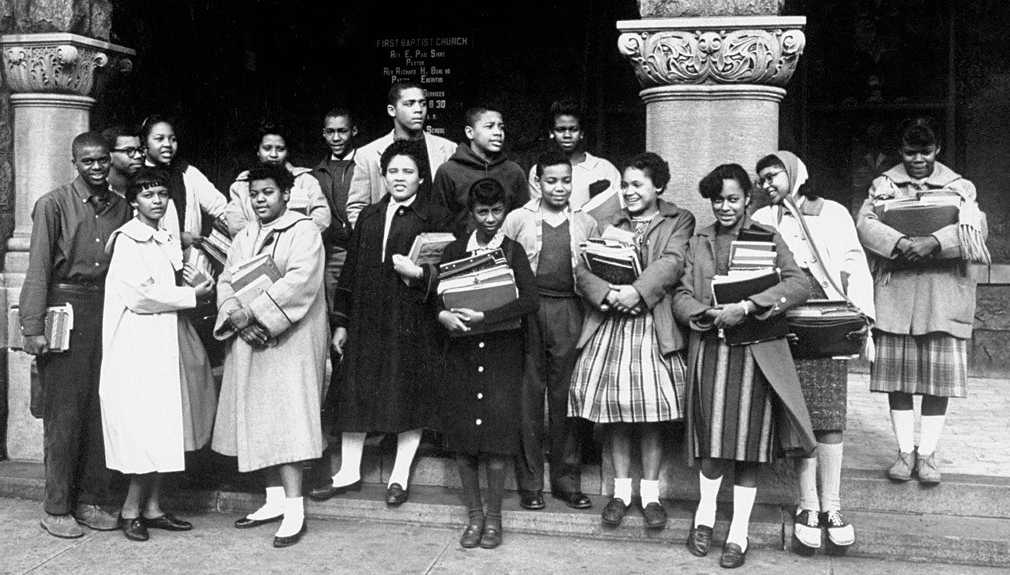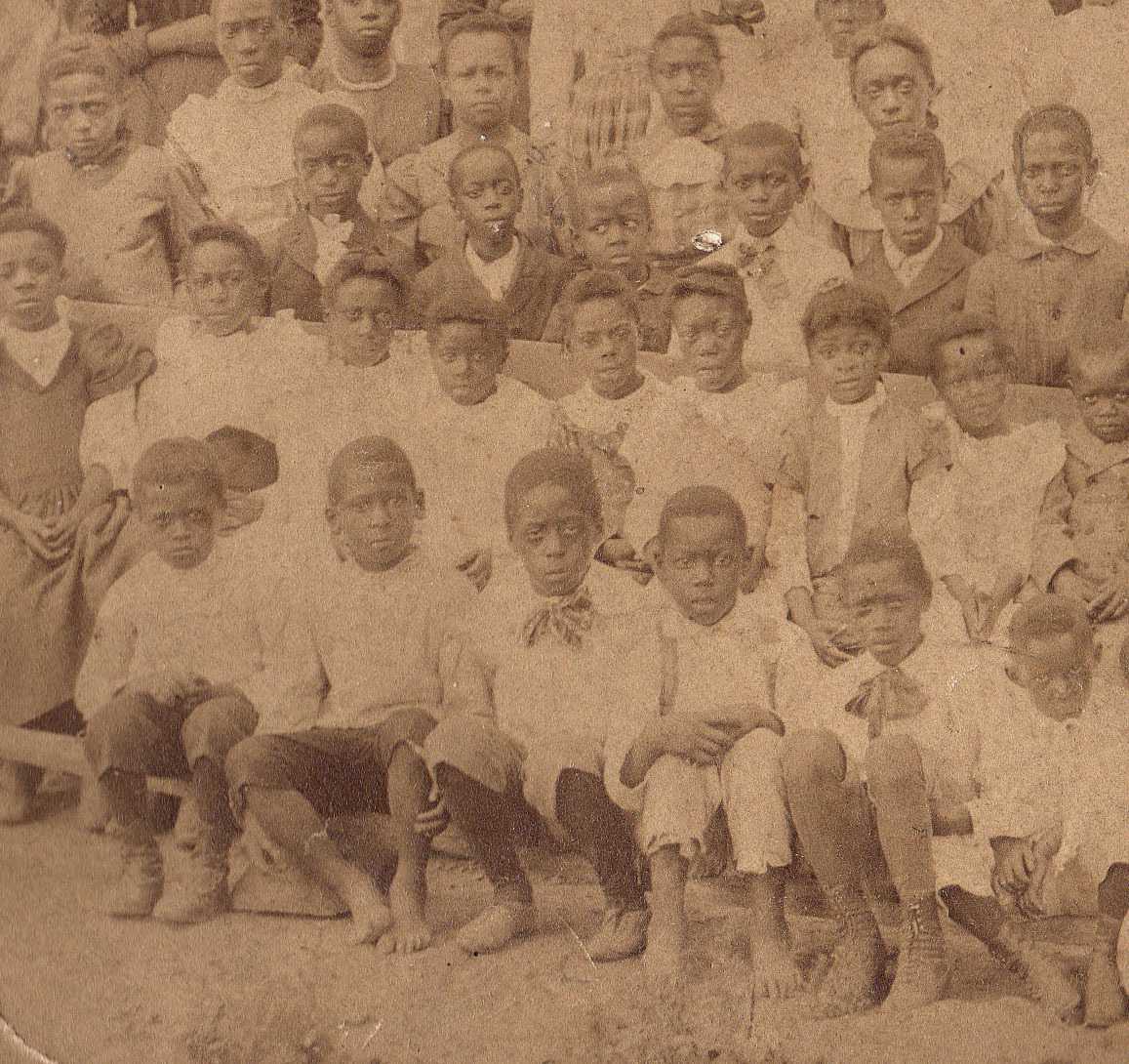Community Story
The Progressive Club of Johns Island

Founders Esau and Janie B. Jenkins
Esau Jenkins
Janie B. Jenkins and family
The influential civil rights activists Esau and Janie B. Jenkins devoted their lives to their Johns Island, South Carolina, community. After his mother died when he was nine, Esau quit school to help his father and got a job on a boat to provide money for the family. In 1926, at age 16, he married Janie Elizabeth Jones. Together they had 13 children, seven of whom graduated from college. While raising their children they ran several successful businesses, including a truck farm.
The Jenkinses also helped to create the Progressive Club, which operated the first Citizenship School in the nation. Along with the school, the Progressive Club housed a gas station, a grocery store, and a place to sleep. It was an important gathering place for members of the Johns Island community.
Love is Progress, Hate is Expensive
Esau Jenkins
Creating the Progressive Club of Johns Island
Progressive Club member Alice Wine and two children inside the club
Esau Jenkins attended the Highlander Folk School in Tennessee, a training center for labor and civil rights activists from across the United States. There, he discussed strategies for increased adult education and creating citizenship classes on Johns Island.
In 1948, the Jenkinses along with Joe Williams formed the Progressive Club to overcome the limited educational opportunities and social injustices which handicapped local residents.
The club featured a community center and a grocery store, and provided literacy education and childcare. With Septima Clark and Bernice Robinson, the Jenkinses opened a Citizenship School at the Progressive Club in 1957. The program helped register thousands of Black voters across the Sea Islands. Septima Clark successfully lobbied the Charleston County School Board to hire African American teachers, and Bernice Robinson became the first Black teacher at the Highlander Folk School.
Esau Jenkins gathering with kids
The Esau Jenkins Bus
Esau Jenkins, Alfred Fields, and Reverend Willis Goodwin in front of the bus
Door panel from the Esau Jenkins Bus
Esau Jenkins drove a Volkswagen microbus that provided transportation for Johns Island residents. He used the bus to transport children and adults to school and work in Charleston. During the trips, Esau and Janie Jenkins helped adults prepare for the literacy tests required to register to vote.
Jenkins painted his personal motto, "Love is Progress, Hate is Expensive," on the rear panel of the bus.
The Esau Jenkins Bus was added to the National Historic Vehicle Register in 2019.
Restoring the Esau Jenkins Bus
In 2019, Esau Jenkins’s iconic VW microbus was restored, preserved, and added to the National Historic Vehicle Register. The restoration was done in association with the Jenkins family, the Historic Vehicle Association, the NB Center for American Automotive Heritage, and the Hagerty Drivers Foundation.
The Citizens Committee
Esau Jenkins organized the Citizens Committee of Charleston County in 1959. The committee furthered the work of the Progressive Club through voter registration drives, political appointments, discouraging school dropouts, and food drives. The Citizens Committee also operated several businesses on Johns Island.
The C.O. Federal Credit Union
C.O. Federal Credit Union
Members of the Citizens Committee and C.O. Credit Union
In 1966 the Citizens Committee sent Esau Jenkins to Washington, D.C., to petition the government for a federal credit union charter. The charter allowed the committee to found the Community Owned (C.O.) Federal Credit Union.
The C.O. Credit Union provided low-interest loans for African Americans unable to obtain loans from white-owned banks, In 2021, when the credit union closed, it served 711 members and held approximately $2.8 million in deposits. Its members included the Citizens Committee of Charleston County and the International Longshoreman’s Association, Local 1422, the labor union of Port of Charleston dockworkers.
Legacy of the Progressive Club
After Esau Jenkins’s death in 1972, the Progressive Club continued to serve the local community on Johns Island. In 2013, a state historic marker was placed at the site of the club’s building, which was destroyed by Hurricane Hugo in 1989. Today, a new generation of Progressive Club members is working to revitalize the organization and uphold Esau and Janie Jenkins’ commitment to political engagement, community service, and racial equality.


